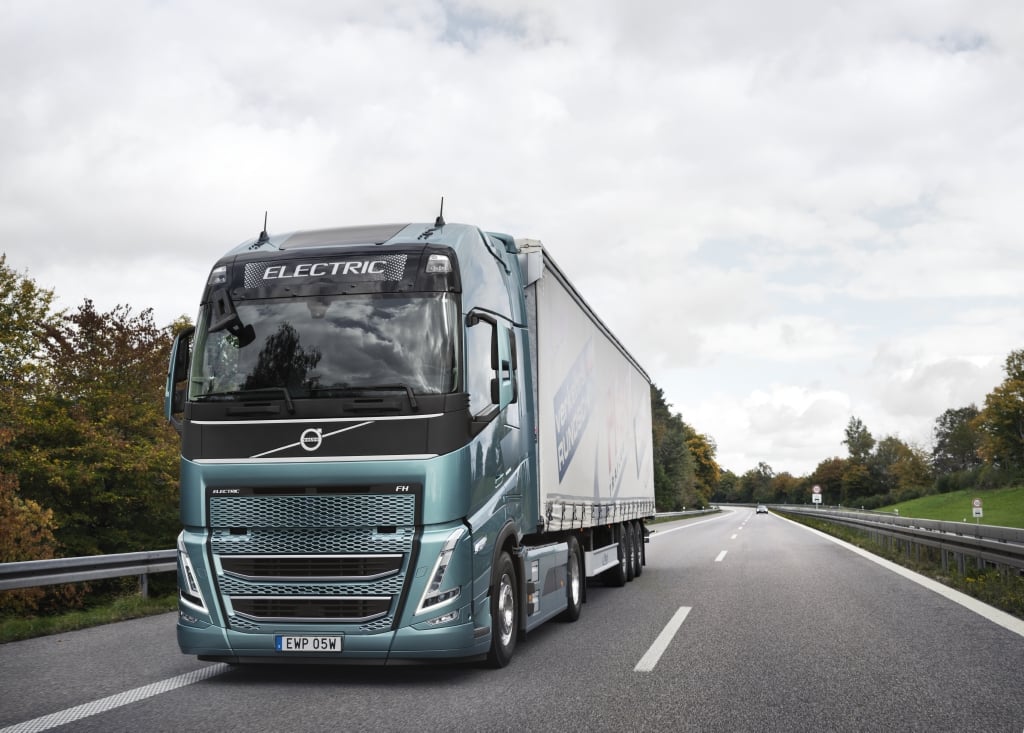An expansion of the Rapid Charging Fund (RCF) to cover all road transport could deliver enough capacity for en-route Heavy Goods Vehicle (HGV) charging and hydrogen re-fuelling at up to 78% of motorway service areas in England.
Meanwhile, for a cost increase, enough grid capacity to cover 100% of en-route HGV charging and hydrogen re-fuelling can be delivered through the RCF.
That’s the key finding of new analysis led by National Grid and supported by HGV manufacturers and freight industry.
First announced in 2020, the £950 million RCF is aiming to deliver six high-power, open access electric vehicle (EV) chargepoints at each motorway service area (MSA) by 2023 and 6,000 in total by 2035.
High-power chargers are becoming increasingly common, particularly at MSAs due to the speed at which they can charge a vehicle.
The RCF was designed to solve the challenge of these high-powered chargers often requiring upgraded grid connections, which in turn incur heavy costs, presenting a barrier to the rollout.
National Grid has now found that 53-78% of en-route charging and hydrogen re-fuelling of HGVs at MSAs can be provided at no extra cost to the RCF if transmission connection solutions are used, for example at existing substations.
Indeed, by connecting MSAs to the electricity transmission system, significant capacity for zero-emission HGV infrastructure along the strategic road network can be provided, National Grid said.
HGVs will require similar connections to the electricity system and in similar locations to what is required by cars and vans, while the natural synergies between the transmission system and the transport network means a significant number of the chargepoints targeted by the RCF could be supplied by existing National Grid infrastructure, the company said.
Meanwhile, for a marginal cost increase of 3%-16%, the RCF could provide the necessary grid capacity for the remainder of the sites in England.
There is also further potential for cost savings by coordinating with the Zero Emission Road Freight Trial as it looks to deliver early trials which will also require electricity capacity.
Other sectors using the strategic road network could also then benefit from this additional infrastructure, including long-distance coaches and vans, National Grid said.
It added that an expansion to the RCF will drive cost efficiencies, minimise disruption and accelerate the UK’s transition to zero-emission transport, by building the right infrastructure, in the right place ahead of need.
Only 10-30% of HGVs will charge or refuel en-route, however, with the remainder to recharge or refuel overnight in their depot or at their destinations, National Grid’s modelling suggested.
The modelling also found that if all HGVs in England and Wales were battery electric vehicles (BEVs), their annual energy demand would be around 29TWh/yr, equivalent to a continuous energy demand of 3.3GW which equates to approximately 10% of the total amount of electricity generated in 2019.
If all HGVs were hydrogen fuel cell with hydrogen production via electrolysis, their annual demand would be around 98TWh/yr, equivalent to a continuous energy demand of 11.2GW.
Graeme Cooper, head of future markets at National Grid, said: “The switch to fully decarbonised road transport will only happen if we have the right wires in the right place, at the right time.
“Our analysis shows the importance of digging once and in the right location. Planning future charging infrastructure around connections to the transmission system can bring cost savings and reductions in the amount of infrastructure required.”






